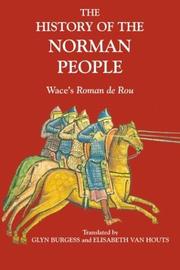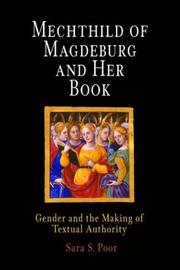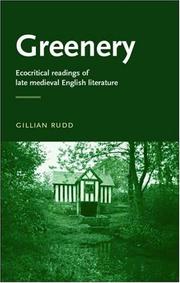| Listing 1 - 7 of 7 |
Sort by
|
Book
ISBN: 9780268020446 0268020442 0268074836 0268158010 026820439X Year: 2015 Publisher: Notre Dame, Indiana : University of Notre Dame Press,
Abstract | Keywords | Export | Availability | Bookmark
 Loading...
Loading...Choose an application
- Reference Manager
- EndNote
- RefWorks (Direct export to RefWorks)
"In The Medieval Islamic Republic of Letters: Arabic Knowledge Construction, Muhsin J. al-Musawi offers a groundbreaking study of literary heritage in the medieval and premodern Islamic period. Al-Musawi challenges the paradigm that considers the period from the fall of Baghdad in 1258 to the collapse of the Ottoman Empire in 1919 as an "Age of Decay" followed by an "Awakening" (al-nahdah). His sweeping synthesis debunks this view by carefully documenting a "republic of letters" in the Islamic Near East and South Asia that was vibrant and dynamic, one varying considerably from the generally accepted image of a centuries-long period of intellectual and literary stagnation. Al-Musawi argues that the massive cultural production of the period was not a random enterprise: instead, it arose due to an emerging and growing body of readers across Islamic lands who needed compendiums, lexicons, and commentaries to engage with scholars and writers. Scholars, too, developed their own networks^ to respond to each other and to their readers. Rather than addressing only the elite, this culture industry supported a common readership that enlarged the creative space and audience for prose and poetry in standard and colloquial Arabic. Works by craftsmen, artisans, and women appeared side by side with those by distinguished scholars and poets. Through careful exploration of these networks, The Medieval Islamic Republic of Letters makes use of relevant theoretical frameworks to situate this culture in the ongoing discussion of non-Islamic and European efforts. Thorough, theoretically rigorous, and nuanced, al-Musawi's book is an original contribution to a range of fields in Arabic and Islamic cultural history of the twelfth to eighteenth centuries. "Muhsin al-Musawi's work systematizes a huge body of primary literary texts and current scholarship under a compelling and original thesis. The Medieval Islamic Republic of Letters will be the starting point for a new generation of scho larship on this six-hundred-year 'republic of letters' that stretched from India to North Africa." --Suzanne P. Stetkevych, Sultan Qaboos bin Said Professor of Arabic and Islamic Studies, Georgetown University"--
Islam --- History of civilization --- anno 500-1499 --- Arabic literature --- Islamic literature --- RELIGION / Islam / History. --- HISTORY / Medieval. --- LITERARY CRITICISM / Medieval. --- History and criticism. --- Religion --- History --- Literary criticism --- Arabic literature. --- Islamic literature. --- Islam. --- Literatur. --- Arabisch. --- Schriftlichkeit. --- Kultur. --- Wissen. --- Intellektueller. --- Netzwerk. --- History. --- Medieval. --- 1258-1800.
Book
ISBN: 9781526144218 1526144212 1526144239 1526144220 Year: 2019 Publisher: Manchester, UK : Manchester University Press,
Abstract | Keywords | Export | Availability | Bookmark
 Loading...
Loading...Choose an application
- Reference Manager
- EndNote
- RefWorks (Direct export to RefWorks)
This collection investigates how the late-medieval household acted as a sorter, user and disseminator of different kinds of ready information, from the traditional and authoritative to the innovative and newly made. Building on work on the noble and bourgeois medieval household, it considers bourgeois, gentry and collegiate households on both sides of the English Channel. The book argues that there is a dynamic and reciprocal relationship between domestic experience and its forms of cultural expression. Contributors address a range of cultural productions, including conduct texts, romances and comic writing, estates-management literature, medical writing, household music and drama and manuscript anthologies. Their studies provide a fresh illustration of the late-medieval household's imaginative scope, its extensive internal and external connections and its fundamental centrality to late-medieval cultural production. "Household Knowledges investigates how the late-medieval household acts as a sorter, user, and disseminator of different kinds of ready information, from the traditional and authoritative to the innovative and newly made. Building on established work on the noble and royal 'great household', as well as on materialist historiography on rural and bourgeois domestic life, it considers bourgeois, gentry, and collegiate households on both sides of the English Channel. The collection argues that the relationship between the domestic experience and the forms assumed by that experience's cultural expression is both dynamic and reciprocal. It addresses a variety of cultural productions, including conduct texts, romances and comic writing, agricultural and estates management literature, devotional and medical writing, household music and drama, and manuscript anthologies. The contributors develop a range of methodologies, drawing on insights generated by recent manuscript scholarship as well as on innovations in affect theory and object relations theory; their chapters reconsider the constitution of the late-medieval urban and gentry home by practices of writing and reading, translation and language use, and manuscript compilation, as well as by the development of complex object-human relations, and the adaptation of traditional gender and class roles. Together, the studies in Household Knowledges provide a fresh illustration of the imaginative scope of the late-medieval household, of its extensive internal and external connections, and of its fundamental centrality - both as an idea and a reality - to late-medieval cultural production." -- Back cover.
Sociology of the family. Sociology of sexuality --- anno 500-1499 --- England --- France --- Households --- Medieval Literature --- Literary Studies: Classical, Early & Medieval --- LITERARY CRITICISM / Medieval --- Literary studies: ancient, classical & medieval --- History --- Great Britain --- Social life and customs --- Intellectual life --- agriculture. --- class. --- conduct. --- gender. --- household objects. --- manuscript anthology. --- material culture. --- medicine. --- medieval domestic life. --- multilingual.
Book
ISBN: 9780812252644 0812252640 Year: 2021 Publisher: Philadelphia University of Pennsylvania Press
Abstract | Keywords | Export | Availability | Bookmark
 Loading...
Loading...Choose an application
- Reference Manager
- EndNote
- RefWorks (Direct export to RefWorks)
What would English literary history look like if the unit of measure were not the political reign but the poetic tradition? The earliest poems in English were written in alliterative verse, the meter of Beowulf. Alliterative meter preceded tetrameter, which first appeared in the twelfth century, and tetrameter in turn preceded pentameter, the five-stress line that would become the dominant English verse form of modernity, though it was invented by Chaucer in the 1380s. While this chronology is accurate, Eric Weiskott argues, the traditional periodization of literature in modern scholarship distorts the meaning of meters as they appeared to early poets and readers. In Meter and Modernity in English Verse, 1350-1650, Weiskott examines the uses and misuses of these three meters as markers of literary time, "medieval" or "modern," though all three were in concurrent use both before and after 1500. In each section of the book, he considers two of the traditions through the prism of a third element: alliterative meter and tetrameter in poems of political prophecy; alliterative meter and pentameter in William Langland's Piers Plowman and early blank verse; and tetrameter and pentameter in Chaucer, his predecessors, and his followers. Reversing the historical perspective in which scholars conventionally view these authors, Weiskott reveals Langland to be metrically precocious and Chaucer metrically nostalgic. More than a history of prosody, Weiskott's book challenges the divide between medieval and modern literature. Rejecting the premise that modernity occurred as a specifiable event, he uses metrical history to renegotiate the trajectories of English literary history and advances a narrative of sociocultural change that runs parallel to metrical change, exploring the relationship between literary practice, social placement, and historical time.
Phonetics --- Poetry --- English literature --- anno 1300-1399 --- anno 1400-1499 --- anno 1500-1599 --- anno 1600-1699 --- English language --- English poetry --- LITERARY CRITICISM / Medieval. --- Poetics --- Poetics. --- Versification. --- Periodization. --- Early modern. --- History and criticism --- Middle English. --- History. --- 1100-1700. --- Versification --- History --- Periodization --- Metrics and rhythmics --- Prosody --- Germanic languages

ISBN: 1280545720 9786610545728 1846150906 1843830078 9781846150906 Year: 2004 Publisher: Woodbridge, Suffolk, UK : Boydell Press,
Abstract | Keywords | Export | Availability | Bookmark
 Loading...
Loading...Choose an application
- Reference Manager
- EndNote
- RefWorks (Direct export to RefWorks)
Wace's Roman de Rou relates the history of the Normans from Rollo (Rou) to the battle of Tinchebray, establishing their right to the English throne.
Normandy (France) --- History --- Normandie (France) --- Basse-Normandie (France) --- Haute-Normandie (France) --- History of Europe --- anno 1000-1099 --- LITERARY CRITICISM / Medieval. --- Battle of Hastings. --- Battle of Tinchebray. --- English Throne. --- Gyrth. --- History. --- King Harold. --- Medieval History. --- Norman Origins. --- Norman Past. --- Norman People. --- Norman Rulers. --- Realistic Conversations. --- Rollo. --- Romance. --- Wace. --- William the Conqueror. --- Wace (110.-117.). Roman de Rou --- 911-1204 --- Sources
Multi
ISBN: 9789463720274 9789048555178 9048555175 Year: 2023 Publisher: Amsterdam : Amsterdam University Press,
Abstract | Keywords | Export | Availability | Bookmark
 Loading...
Loading...Choose an application
- Reference Manager
- EndNote
- RefWorks (Direct export to RefWorks)
This book is a new history of early modern gender, told through the lyric poetry of Renaissance Italy. In the evolution of Western gender roles, the Italian Renaissance was a watershed moment, when a confluence of cultural developments disrupted centuries of Aristotelian, binary thinking. Men and women living through this upheaval exploited Petrarchism's capacity for subjective expression and experimentation - as well as its status as the most accessible of genres - in order to imagine new gendered possibilities in realms such as marriage, war, and religion. One of the first studies to examine writing by early modern Italian men and women together, it is also a revolutionary testament to poetry's work in the world. These poets' works challenge the traditional boundaries drawn around lyric's utility. They show us how poems could be sites of resistance against the pervading social order - how they are texts capable not only of recording social history, but also of shaping it.
Sociology of the family. Sociology of sexuality --- Poetry --- Italian literature --- poetry --- gender [sociological concept] --- Renaissance --- Petrarca, Francesco --- Social and cultural history. --- Literary studies: poetry and poets. --- Literary studies: ancient, classical and medieval. --- LITERARY CRITICISM / Poetry. --- LITERARY CRITICISM / Medieval. --- LITERARY CRITICISM / European / Italian. --- Literary studies: classical, early and medieval. --- Petrarchism, lyric, gender, women writers, masculinity. --- Sex role in literature. --- Italian poetry --- History and criticism. --- Petrarca, Francesco, --- Criticism and interpretation.

ISBN: 0812238028 1322511101 0812203283 9780812238020 Year: 2004 Publisher: Philadelphia : University of Pennsylvania Press,
Abstract | Keywords | Export | Availability | Bookmark
 Loading...
Loading...Choose an application
- Reference Manager
- EndNote
- RefWorks (Direct export to RefWorks)
Sometime around 1230, a young woman left her family and traveled to the German city of Magdeburg to devote herself to worship and religious contemplation. Rather than living in a community of holy women, she chose isolation, claiming that this life would bring her closer to God. Even in her lifetime, Mechthild of Magdeburg gained some renown for her extraordinary book of mystical revelations, The Flowing Light of the Godhead, the first such work in the German vernacular. Yet her writings dropped into obscurity after her death, many assume because of her gender.In Mechthild of Magdeburg and Her Book, Sara S. Poor seeks to explain this fate by considering Mechthild's own view of female authorship, the significance of her choice to write in the vernacular, and the continued, if submerged, presence of her writings in a variety of contexts from the thirteenth through the nineteenth century. Rather than explaining Mechthild's absence from literary canons, Poor's close examination of medieval and early modern religious literature and of contemporary scholarly writing reveals her subject's shifting importance in a number of differently defined traditions, high and low, Latin and vernacular, male- and female-centered. While gender is often a significant factor in this history, Poor demonstrates that it is rarely the only one. Her book thus corrects late twentieth-century arguments about women writers and canon reform that often rest on inadequate notions of exclusion. Mechthild of Magdeburg and Her Book offers new insights into medieval vernacular mysticism, late medieval women's roles in the production of culture, and the construction of modern literary traditions.
Matilda of Magdeburg --- Mechthild, --- 091 MECHTILDIS MAGDEBURGENSIS DE HELFTA --- Handschriftenkunde. Handschriftencatalogi--MECHTILDIS MAGDEBURGENSIS DE HELFTA --- 091 MECHTILDIS MAGDEBURGENSIS DE HELFTA Handschriftenkunde. Handschriftencatalogi--MECHTILDIS MAGDEBURGENSIS DE HELFTA --- 091-055.2 --- 091-055.2 Handschriftenkunde. Handschriftencatalogi--Vrouwen --- Handschriftenkunde. Handschriftencatalogi--Vrouwen --- German literature --- Manuscripts. Epigraphy. Paleography --- anno 500-1499 --- anno 1200-1299 --- anno 1300-1399 --- Germany --- Women mystics --- Cultural Studies. --- Gender Studies. --- Literature. --- Medieval and Renaissance Studies. --- Women's Studies. --- LITERARY CRITICISM / Medieval. --- Mystics --- Mechtildis Magdeburgensis de Helfta --- Mechthild, - of Magdeburg, - ca. 1212-ca. 1282. - Fliessende Licht der Gottheit. --- Canon --- Religion --- Writers --- Spirituality --- Book

ISBN: 1781701717 1847793843 9781847793843 9781781701713 0719072484 9780719072482 9780719072499 0719072492 Year: 2007 Publisher: Manchester
Abstract | Keywords | Export | Availability | Bookmark
 Loading...
Loading...Choose an application
- Reference Manager
- EndNote
- RefWorks (Direct export to RefWorks)
Humankind has always been fascinated by the world in which it finds itself, and puzzled by its relations to it. Today that fascination is often expressed in what is now called 'green' terms, reflecting concerns about the non-human natural world, puzzlement about how we relate to it, and anxiety about what we, as humans, are doing to it. So called green or eco-criticism acknowledges this concern.Greenery reaches back and offers new readings of English texts, both known and unfamiliar, informed by eco-criticism. After considering general issues pertaining to green criticism, Greenery moves on to a series of individual chapters arranged by theme (earth, trees, wilds, sea, gardens and fields) which provide individual close readings of selections from such familiar texts as Malory's Morte D'Arthur, Chaucer's Knight's and Franklin's Tales, Sir Gawain and the Green Knight and Langland's Piers Plowman. These discussions are contextualized by considering them alongside hitherto marginalized texts such as lyrics, Patience and the romance Sir Orfeo. The result is a study which reinvigorates our customary reading of late Middle English literary texts while also allows us to reflect upon the vibrant new school of eco-criticism itself.
Nature in literature. --- English literature --- Ecocriticism. --- Ecological literary criticism --- Environmental literary criticism --- Criticism --- Nature in poetry --- History and criticism. --- Literary studies: ancient, classical & medieval. --- Literature. --- LITERARY CRITICISM / Medieval. --- Literary Studies: Classical, Early & Medieval. --- British literature --- Inklings (Group of writers) --- Nonsense Club (Group of writers) --- Order of the Fancy (Group of writers) --- Belles-lettres --- Western literature (Western countries) --- World literature --- Philology --- Authors --- Authorship --- Middle English. --- Middle English literature --- Thematology --- Old English literature --- History of the United Kingdom and Ireland --- anno 1200-1499 --- Sir Orfeo. --- earth. --- eco-criticism. --- fields. --- gardens. --- natural world. --- sea. --- trees. --- wilds.
| Listing 1 - 7 of 7 |
Sort by
|

 Search
Search Feedback
Feedback About
About Help
Help News
News